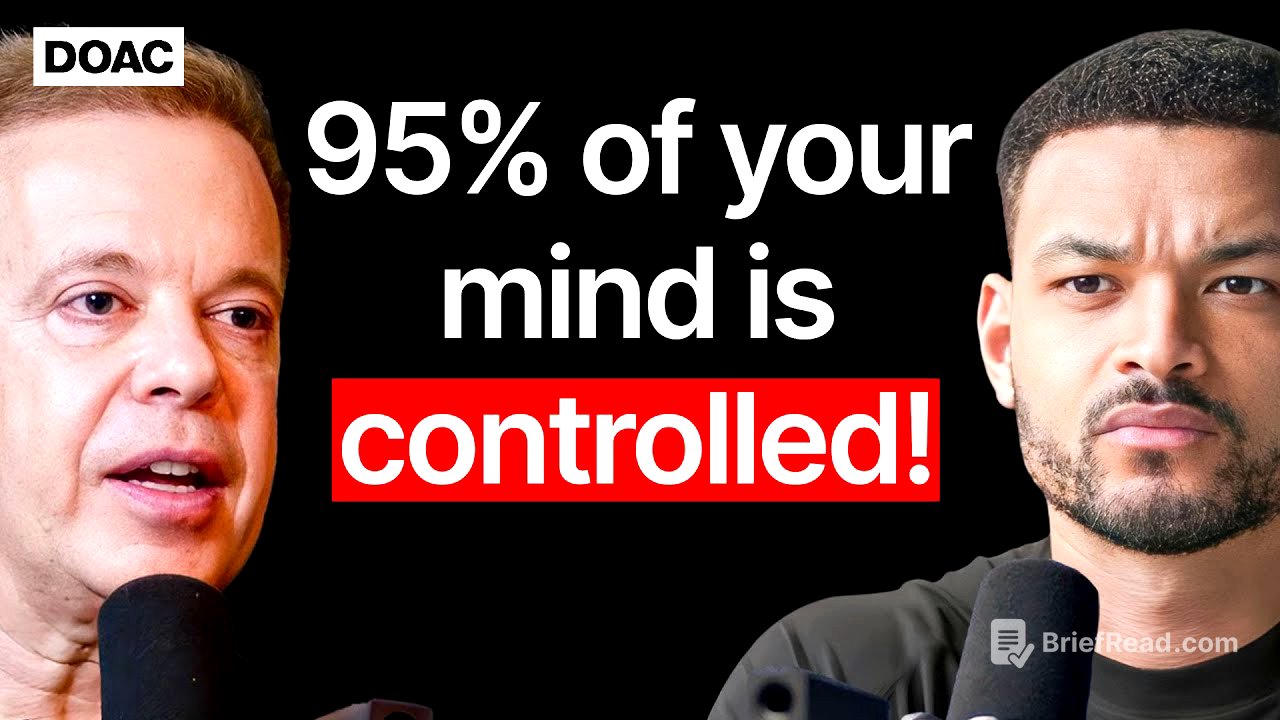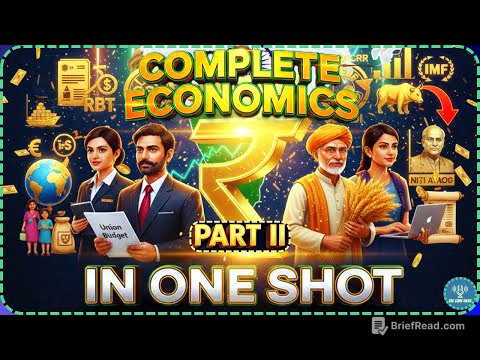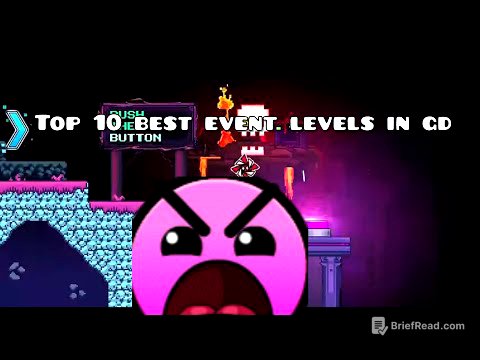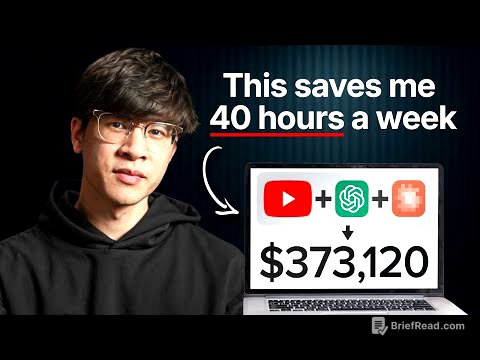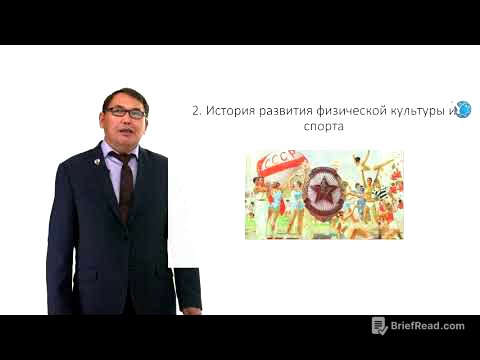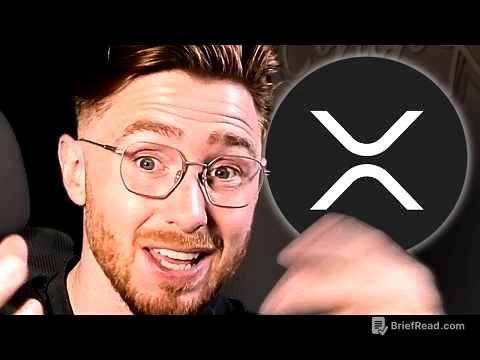TLDR;
This episode of The Diary Of A CEO features Dr. Joe Dispenza, a researcher and author, discussing the power of the mind to heal and transform. He argues that our thoughts and emotions significantly impact our biology and that by becoming conscious of our unconscious habits, we can reprogramme ourselves for a better future. Key points include:
- 95% of who we are by age 35 is programmed, but we can change through conscious effort.
- Trauma and negative patterns can be overcome with the right understanding and persistence.
- Meditation and mental rehearsal are powerful tools for rewiring the brain and conditioning the body.
- Collective consciousness and community play a vital role in healing and transformation.
Intro [0:00]
Dr. Joe Dispenza's research indicates that thoughts can cause illness, raising the question of whether they can also promote wellness. He emphasises the possibility of using thoughts to heal and highlights the addictive nature of psychological and emotional stress. He notes that people often recreate negative life experiences to avoid change. Dr. Dispenza introduces the concept that 95% of a person's identity is programmed by the age of 35, but change is possible by breaking old habits and reinventing oneself. He encourages viewers to subscribe to the channel to support its growth and the quality of its guests.
Is our life programmed? [1:52]
Dr. Dispenza explains that habits are redundant, automatic thoughts, behaviours, and emotions acquired through repetition, becoming subconscious programmes. He cites neuroscience, stating that nerve cells that fire together wire together, leading to hardwired biology based on repeated thoughts, choices, and emotions. To change, one must alter their thinking, acting, and feeling. Becoming conscious of unconscious thoughts and behaviours allows one to observe and change the programme, regaining free will. Changing deeply ingrained habits requires significant energy and awareness.
Can we change our behaviour patterns and heal our bodies? [7:03]
Dr. Dispenza addresses the question of whether certain behaviour patterns, especially those resulting from early childhood trauma, are unchangeable. He shares that his perspective has evolved, and he has witnessed individuals with severe traumas and health conditions completely transform their lives. He asserts that with understanding and the right approach, people can change various aspects of themselves. Research indicates that such changes lead to alterations in brain function, heart rate, gene expression, and the release of metabolites, supporting the person's transformation. He highlights cases of stage four cancers, blindness, ALS, Lupus, MS, Parkinson's disease, spinal cord injuries, strokes, PTSD, and even the regrowth of a surgically removed thyroid.
Sharing the science with people to transform themselves [13:55]
Dr. Dispenza feels responsible for ensuring that the information he shares is scientifically sound. He emphasises the importance of research into change, transformation, and the effects of meditation on biology. His goal is to provide people with a clear understanding of the truth and opportunities to experience it. He combines quantum physics, neuroscience, neuroendocrinology, psychoneuroimmunology, epigenetics, and electromagnetism to help people understand themselves better. Knowledge about oneself empowers individuals to make changes. Understanding the process of change makes it easier to achieve.
Why can't we apply that knowledge to ourselves? [22:40]
Dr. Dispenza explains that people often fail to act on sound advice due to the need for a crisis, trauma, or significant loss to reach a point where old coping mechanisms no longer work. This moment of reckoning allows individuals to see themselves objectively and recognise their patterns. He suggests that being defined by a vision of the future and elevating one's state daily can drive change. This involves combining clear intentions with elevated emotions through meditation, living as if the desired future has already happened. The difficulty in changing lies in overcoming the discomfort of making different choices and stepping into the unknown.
Being the creator of our lives [30:36]
Dr. Dispenza identifies disbelief as a significant barrier to change, noting that many unconsciously doubt their ability to create their own lives. He encourages taking responsibility for one's life, rather than being a victim of circumstances. Creating involves consciously shaping one's personality by changing thoughts, actions, and feelings. Meditation helps familiarise oneself with new ways of thinking, installing new mental hardware. Rehearsing desired behaviours mentally primes the brain for those actions.
Why are we addicted to things? [33:20]
Dr. Dispenza suggests that people may be addicted to the guilt associated with certain behaviours, rather than the behaviours themselves. He recommends deciding how to act differently and mentally rehearsing those changes. Mental rehearsal can physiologically change the brain, making it believe the experience has already happened. He also advises breaking the conditioning of negative emotions by teaching the body to feel something different, such as self-love or joy. The model of change involves unlearning old habits and reinventing oneself.
Biological changes [39:20]
Dr. Dispenza discusses the biological changes observed during week-long events designed to immerse people in transformative experiences. These events include brain scans and heart coherence training, revealing significant improvements in brain function and heart regulation. Blood tests measuring metabolites show that participants' bodies begin to reflect a new environment or life, with unique chemistry emerging without drugs or significant lifestyle changes. Gene expression and microbiome composition also undergo dramatic changes within seven days, demonstrating the mind's profound influence on the body.
How can we be better at helping our loved ones? [42:41]
Dr. Dispenza shares his approach to helping others change, emphasising the importance of demonstrating change rather than offering unsolicited advice. He believes that new information is only effective when it aligns with a person's emotional state. He suggests helping people break free from emotions that anchor them to the past, allowing them to gain insights and find their own answers. Analysing problems within a negative emotional state can worsen the situation. He advises helping loved ones shift their emotional state through enjoyable activities, showing them what love and joy look like, and giving them permission to change.
Is the world getting better or worse? [47:37]
Dr. Dispenza questions the truthfulness of the information available today, expressing concern about whether it is based on altruism or self-interest. He believes that people are increasingly aware of the need for change to ensure the survival of the species. He identifies a lack of connection as a symptom of cultural disease, emphasising the importance of connection, communion, cooperation, and creation. He suggests that keeping people in survival mode, fear, war, anger, pain, and confusion allows for control of their attention by manipulating their emotions.
Stress: if your thoughts can make you sick, can they make you well? [51:02]
Dr. Dispenza defines stress as a state where the brain and body are knocked out of balance. Prolonged activation of the fight-or-flight system leads to chronic imbalance and potential disease. He notes that emotions like anger, hostility, fear, and depression stem from stress hormones and cause a sense of separation. He highlights that 75-90% of healthcare visits in the Western world are due to psychological or emotional stress. Since thoughts can trigger the stress response and cause illness, he posits that thoughts can also promote wellness.
Why are we addicted to negative emotions? [57:37]
People often rely on external things to make negative emotions go away, which can lead to addictions. Dr. Dispenza suggests that changing the emotional state diminishes the need for these external dependencies. Breaking an addiction to an emotion can cause cravings, as the body signals the brain to return to familiar feelings. He explains that people often relive past experiences to justify their current emotions, even if those memories are not entirely accurate. Overcoming the emotion allows one to see the past from a greater level of consciousness.
Does manifesting work? [59:20]
Dr. Dispenza explains that changing a belief requires a firm decision with energy greater than hardwired programs and emotional conditioning. The body responds to the mind, making the choice a memorable moment. He notes that the stronger the emotion, the more one remembers the choice. He addresses the idea that affirmations alone are not effective if the body does not believe them. Making a choice to change with clear intention and elevated emotion shifts one's state to believe in a new future.
What causes a relapse and how to revert it? [1:05:45]
Relapses occur when one goes unconscious, often triggered by a thought or environmental interaction that evokes a familiar negative emotion. To change, one must be greater than their environment, body, and time. The neocortex reflects past experiences and associated emotions. In familiar environments, personal reality can dictate personality. To avoid relapse, rehearse how not to think, act, and feel, and remind oneself of desired thoughts, actions, and feelings. Maintaining a modified state of mind and body can lead to unexpected positive feedback, reinforcing the internal change.
How do we put all of this into practice? [1:11:48]
Dr. Dispenza explains that the subconscious mind is most accessible upon waking and before sleeping. Meditation helps bypass the analytical mind, accessing the subconscious operating system. Instead of immediately reaching for the phone, he suggests sitting quietly and identifying thoughts, behaviours, and emotions to change. Rehearse desired thoughts, behaviours, and feelings, and commit to maintaining that state throughout the day. Consistent practice leads to synchronicities and a desire to continue the work.
What's your morning routine? [1:20:17]
Dr. Dispenza wakes up early to have uninterrupted time for himself. He spends time remembering what he is doing and why, organising his thoughts and reviewing what he will avoid. He then transitions to changing his state, allowing two hours for this process. He finds the present moment, disconnects from his body and external thoughts, and moves beyond space and time.
Meditation [1:22:05]
Dr. Dispenza describes how focusing on nothing during meditation can lead to significant brain changes. Stress causes the brain to become modular and compartmentalised, with different areas firing incoherently. By broadening focus and opening awareness to space, the brain waves slow down, and the different compartments begin to synchronise. This holistic state feels good and reduces anxiety and depression. He sets an intention each morning to be relaxed and awake, present, and inspired to help people change.
What do you struggle with? [1:25:50]
Dr. Dispenza juggles various aspects of his company, including events, products, corporate consulting, a vitamin company, remote coherence healers, a research team, and non-profits. He struggles with wanting more time for creative pursuits, such as studying research, teaching, and creating meditations. He acknowledges the challenge of staying creative amidst numerous obligations. He values his team and strives to be an example of everything he teaches.
The accident that changed my life [1:33:31]
Dr. Dispenza shares that being run over by a truck in a triathlon, breaking six vertebrae, and facing potential surgery led him to explore the mind's ability to heal the body. He went against medical advice and embarked on a journey to heal himself, which ultimately worked. This experience shaped his life's work.
Your companies & research [1:36:06]
Dr. Dispenza explains that his various ventures, such as corporate consulting and the Inner Health Coalition, emerged organically from community needs. He emphasises that his research is no longer pseudo-science, asserting that the body can produce a pharmacy of chemicals more effective than any drug through meditation. He highlights the significant causality rates in his research, where a high percentage of participants experience positive responses without exogenous substances.
If it were your last day, what message would you tell people? [1:39:20]
If it were his last day on Earth, Dr. Dispenza would want people to believe in themselves, remember their creative power, and remain open to possibility. He believes that humans are more powerful and unlimited than they realise. He is moved by the feedback he receives and is inspired to continue his work.
What do you want to achieve in the next 10 years? [1:41:08]
In the next decade, Dr. Dispenza hopes to publish numerous papers demonstrating human potential, establish a research centre for studying chronic health conditions, and shift the conversation around healthcare and medicine. He envisions meditation becoming a way of life for more people and aims to demystify the process, teaching it based on data rather than culture or religion.
Walk For The World: Bringing people together [1:46:19]
Dr. Dispenza discusses the Walk For The World initiative, a global walk on September 23rd aimed at fostering community and overcoming the illusion of separation. Drawing from peace gathering projects, he notes that collective meditation can reduce crime rates and violence. The walking meditation involves embodying change and considering one's impact on the world. He highlights data suggesting that coherent collective networks can influence reality.
What are the beliefs you're scared to share? [1:50:51]
Dr. Dispenza shares his belief that humans perceive less than 1% of reality and should remain open to the unknown. He believes in realities beyond space and time and latent systems in the brain that can transduce energy into profound information.
Do psychedelics help us? [1:52:58]
Dr. Dispenza suggests that psychedelics offer a glimpse of reality beyond three dimensions. He notes that the nervous system produces its own psychedelics, and mystical experiences can resemble the effects of psilocybin. He explains that the pineal gland, with its crystals, acts as a radio receiver for electromagnetic frequencies, transducing them into sensory experiences.
The last guest's question [1:55:36]
If made president, Dr. Dispenza would prioritise education, reform healthcare, unify different groups, stand up for principles, reduce debt, end war, and carefully consider artificial intelligence. He would also encourage religious collaboration, promote regenerative agriculture, and address healthy food access. He thanks the interviewer and acknowledges the impact his work has on others.
